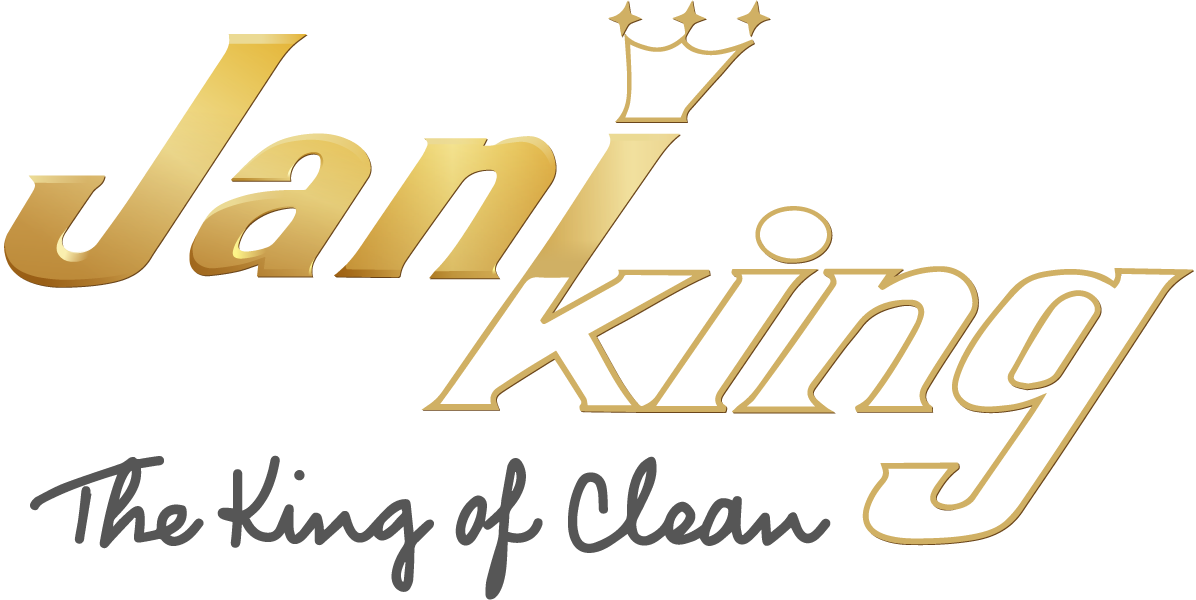Jani-King Reconciliation Action Plan
Our Reconciliation Action Plan
The Jani-King business model appeals to many Australians wishing to create a small business of their own. Included in our diverse network, we currently have 13 franchise owners who identify as Aboriginal or Torres Strait Islander people.
The development of our RAP plan is a formal commitment to increase our overall engagement, knowledge of and impact with Aboriginal and Torres Strait Islander peoples and communities within our employee network.
We believe there is a strong opportunity to offer further business opportunities, supplier partnerships and career development opportunities to Aboriginal and Torres Strait Islander peoples. We aim to educate ourselves about how to best engage with persons from these communities and support them as we work together to meet our overall goals as a business.
Our first aim is to educate our senior management team and staff about the Aboriginal and Torres Strait Islander communities. We plan to do this with a particular focus on the communities near each of our offices within capital cities. This education program aims to understand the rich heritage of our First Nations peoples. We want to develop a deeper understanding of how our business can better support reconciliation in Australia and provide a positive impact on the lives of our Aboriginal and Torres Strait Islander communities.
The champion of our Reflect RAP is our Manager – Optimisation & Training, Suzi Dileo.
Acknowledgement of Country
In the spirit of reconciliation, Jani-King acknowledges the Traditional Custodians of Country throughout Australia and their connections to land, sea and community.
We pay our respect to their Elders, past and present, and extend that respect to all Aboriginal and Torres Strait
Islander peoples today.
Our mission is to further develop sustainable relationships with Aboriginal and Torres Strait Islander peoples by:
- Increasing cultural awareness, understanding and celebrating the heritage of our First Nations peoples within our employee network leads to greater empathy and equity.
- Increasing career development opportunities for our current and future Indigenous staff members.
- Communicating effectively to Aboriginal and Torres Strait Islander communities regarding Business Opportunities available within the Jani-King franchise business framework.
- Identifying and developing supplier partnerships with Aboriginal and Torres Strait Islander-owned businesses.
- Further expanding recruitment partnerships with an Indigenous engagement focus.
Our RAP Artwork
At Jani-King Australia, we are dedicated to the mission of developing stronger relationships with Aboriginal and Torres Strait Islander peoples. This mission led to the commissioning of our customised RAP artwork by an indigenous artist, as we wanted to have real meaning behind our journey in creating this plan.
The 10 tile pieces in this artwork represent the 10 offices across Jani-King Australia – allowing the team to be connected within this artwork. We are proud to have each individual piece displayed in each of the corresponding offices across the country. Together, these 10 tiles join together to create one united piece of art – representative of how our offices cohesively work together to create one united company.
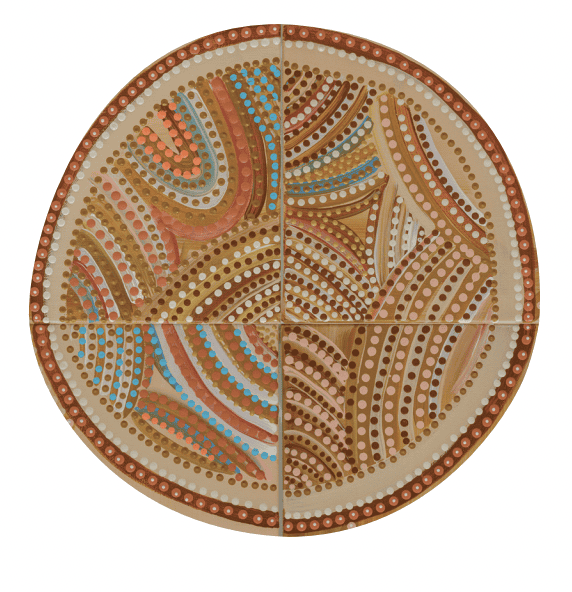
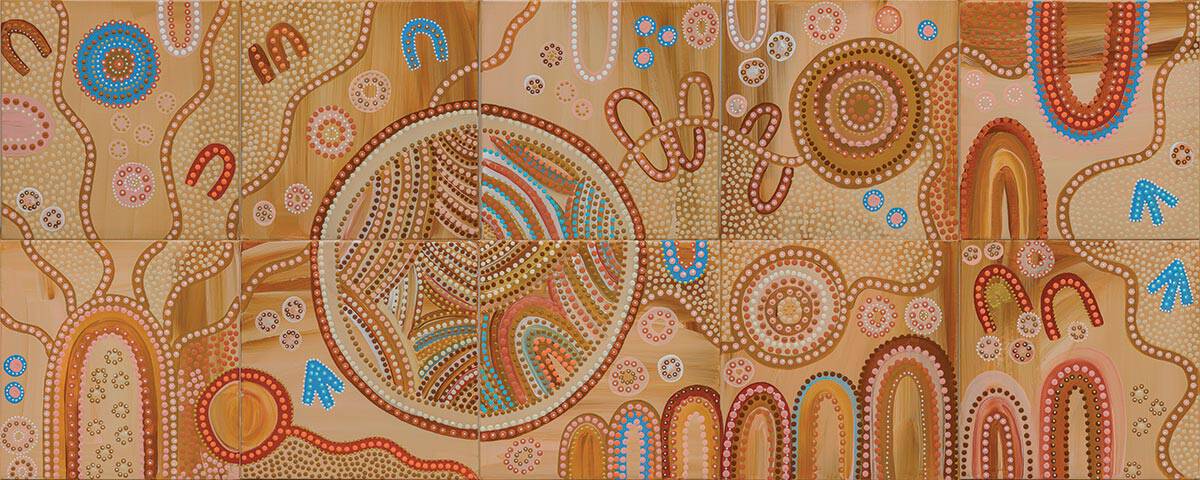
This artwork was created by Sheri Skele.
“This artwork features various elements such as camps, bush turkey tracks, sand dunes, medicinal shrubs, native shrubs, journey lines, river crossings, and people. These symbolise the coastal landscape of Gubbi Gubbi Country and our strong connection to it which represents the commitment Jani-King has to improve the gap of Indigenous communities through a coordinated and strategic RAP.
The greater circles represent the heart of Jani-King, with the surrounding circles (camps) radiating outward from the centre representing the thousands of diverse franchisees and families. The flowing river crossing represents water critical to life and for our sustainability, symbolising the fluidity of development and growth.
I have included medicinal shrubs as well as native shrubs to symbolise the importance of the health and well-being of Jani-King’s clients, which is shown through the ongoing support systems that Jani-King provides. The sand dunes are representative of the strength and resilience of our people and the many struggles they have faced throughout history. The ‘U’ shapes symbolise the people of Jani-King who are committed to working collaboratively with Aboriginal and Torres Strait Islander peoples to develop strategies and programs that acknowledge, educate and value the unique contributions that Aboriginal and Torres Strait Islander peoples make to the Jani-King network.
The journey lines within this piece signify the different directions within the company and represent Jani-King’s mission to further develop sustainable relationships with Aboriginal and Torres Strait Islander peoples.”
– Sheri Skele, Bigi Nagala.
Our journey so far
First Aboriginal and Torres Strait Islander Jani-King Franchise Owner
First ‘Indigenous Employment Strategy’ introduced
Formal introduction of ‘Indigenous Engagement Policy’ and communication of this policy to our network
Started tracking our current First Nations engagement
Commence partnership with Saltbush Recruitment Agency to increase Aboriginal and Torres Strait Islander engagement within our hotels division
Senior Management commitment made to investigate ways to increase First Nations Engagement within the Jani-King network
HSEQ Manager appointed as Indigenous Engagement leader for Jani-King
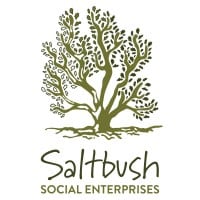
Our Partnerships
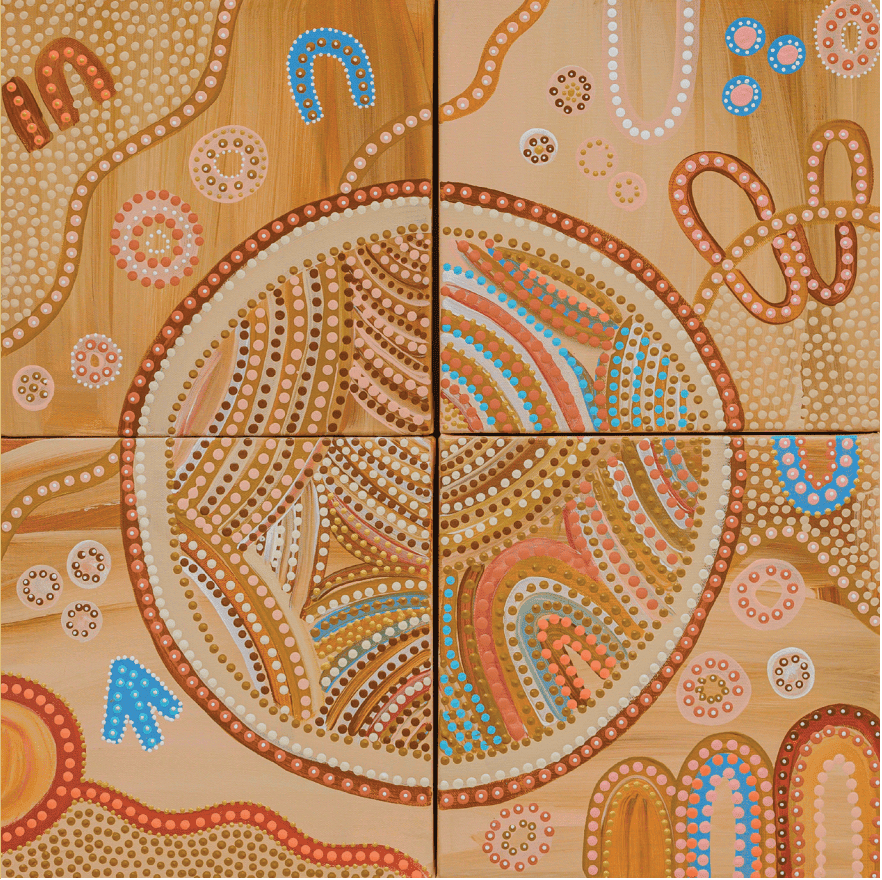
Jani-King’s Reconciliation Action Plan (RAP) for 2024 – to 2025
Our Reconciliation Action Plan (RAP) represents our commitment to reconciliation and creating a positive impact in the Indigenous communities we work within. We know it’s our actions that make the difference. You can find each action we plan to undertake between May 2024 and April 2025 in our Reconciliation Action Plan (RAP), available for viewing through the Reconciliation Australia website.
